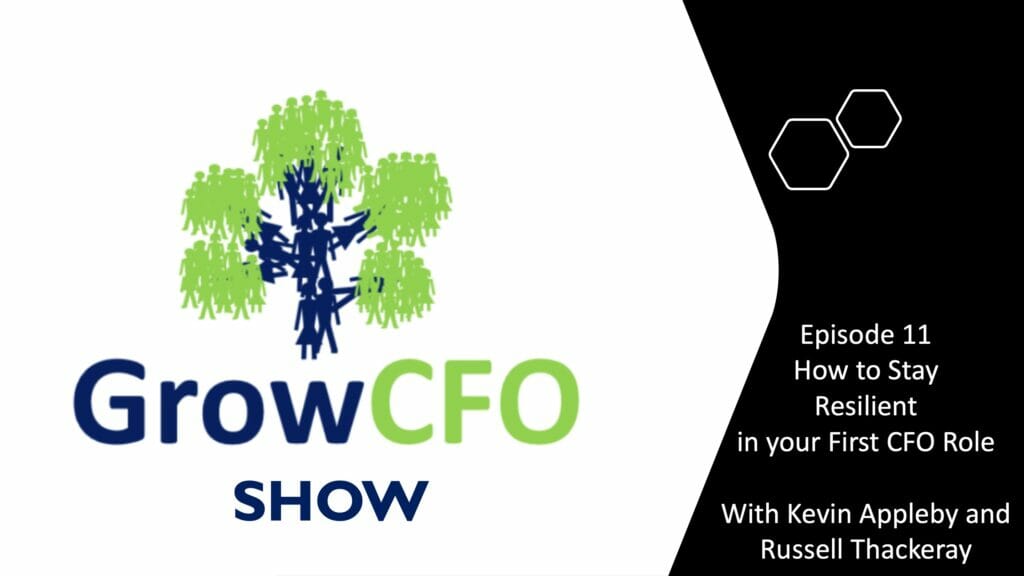What’s the Secret to Building Influence, Trust, and Clarity Through Communication?
Great finance leaders aren’t just number-savvy—they’re master communicators. Whether presenting to the board, leading a team, or navigating difficult conversations, the way you communicate directly affects your impact. And yet, most professionals overestimate their communication skills. In fact, 15% of finance leaders say it’s one of their top three challenges. In this guide, we’ll show you how to simplify your message, tailor your delivery, and build powerful connections—no matter the audience or setting.
How well do you communicate with others? What strategies can you use to better engage with your colleagues? How might you approach a difficult conversation in a way that ensures mutual understanding and respect?
Research shows that most people overrate their own communication abilities and underestimate the importance of having a good plan when it comes to communicating effectively. The majority of finance leaders highlight situations where they would benefit from enhancing their communication. In fact, 15% of finance leaders consider this to be one of their top three biggest challenges.
As a finance leader, you must ensure that your messages come across loud and clear, from both verbal and non-verbal cues. You must possess strong listening skills, to properly understand what others are saying, as well as the ability to adjust your communication depending on who you’re speaking with. In this guide, we’ve outlined the essential communication tips to enhance your skills as a finance leader.
Table of Contents
How Can You Tell If Your Communication Style Is Holding You Back?
Before we look at the advice and techniques which finance leaders can use to enhance their communication, let’s take a look at some of the common signs that your communication skills may need improving.
Do you relate to any of these thoughts?
- “I often feel like I’m not being properly heard or understood”
-
“I leave conversations feeling frustrated or angry due to miscommunication”
-
“I find it difficult to express myself clearly, especially when discussing complex financial topics”
-
“I feel uncomfortable presenting to groups and lack impact in the delivering of my messages”
-
“I struggle to stay engaged in conversations, particularly when they involve a lot of detail”
-
“I sometimes fail to pick up on the key messages that people are trying to tell me”
-
“I come away from meetings without having gathered the key facts that other people learnt”
You may also:
- Find yourself repeating the same message multiple times to get your point across
- Feel like you’re not adequately prepared for conversations involving a lot of detail
- Be aware that your communication is often unclear and lacks impact
- Struggle to communicate effective with certain types of people
- Feel uncomfortable in larger groups, particularly with people you don’t know very well
- Spend much more time speaking than listening to other people
- Give people the impression that you are not properly listening to what they are saying
If you can relate to any of these issues, it’s likely that you need to work on your communication skills. Otherwise, you may not be able to build strong relationships with clients, colleagues and stakeholders; or create an environment that encourages creativity, collaboration and innovation. Fortunately, there are a variety of effective strategies and techniques which you can use to enhance your communication as a finance leader.
What Causes Poor Communication Among Finance Leaders—and How Can You Fix It?
There are many reasons why finance leaders struggle with their communication. This is particularly common in the finance sector, where industry experts must communicate complex information and make difficult decisions.
Fear of failure
Negative thoughts: Many finance leaders are afraid to fail, so they find it difficult to communicate what their plans and objectives are. This causes them to understate their abilities and avoid taking risks. It also makes them more nervous when speaking with senior stakeholders, negatively impacting their levels of gravitas and communication style.
Imposter syndrome: Imposter Syndrome is a phenomenon where people, despite their qualifications and achievements, feel like they don’t belong or are not worthy of the position they hold. Many finance leaders feel that if they admit to any weaknesses in their communication it may be seen as a sign of incompetence. Without believing in themselves, many finance leaders don’t feel confident enough to express their views and opinions confidently.
Not being open to feedback: Finance leaders are naturally high performers and can be closed off to feedback, which can lead to misunderstandings or miscommunication. This lack of openness can also lead to a resistance to change or trying out new ideas.
Lacking the necessary skills
Inability to tailor communication: Most finance professionals can easily speak with authority on complex topics, but struggle to make their message relevant and understandable for those who do not have as much financial knowledge or experience. This lack of ability to tailor communication makes it difficult for finance leaders to bridge the gap between their own insights and the understanding of others.
Poor listening skills: Finance leaders tend to focus on the facts and figures, and neglect the importance of listening. Without actively listening to other people’s perspectives or ideas, it can be difficult for finance professionals to build relationships with individuals or teams. Many finance leaders also fail to pick up on what people are really trying to tell them and simply focus on their words used, which do not always tell the full story.
Lack of empathy: The most common cause of poor communication for finance leaders is a lack of understanding or empathy. When communicating messages, it’s essential to understand the perspectives and needs of your audience. That way, you can be sure that your message resonates with everyone and that you’re not inadvertently causing confusion or misunderstanding.
Poor time management
Inadequate preparation: Finance leaders often don’t spend enough time preparing for meetings or presentations, so they may not have all of the necessary information to communicate effectively. They also fail to understand who their audience is and what kind of message will resonate with them. Without adequate preparation, it can be difficult for finance leaders to effectively communicate their ideas and the key messages they are trying to convey.
Overwhelmed with tasks: Finance leaders often struggle to manage their time effectively, leaving them feeling rushed and unprepared when it comes to making important decisions or leading conversations. This can lead to a lack of focus on key issues, resulting in miscommunication or confusion. In addition, finance professionals are often juggling multiple tasks at once and need to be able to switch quickly between topics.
Long-term planning: Most finance leaders have an incredible attention to detail and focus on short-term goals. However, they may not always take the time to consider the long-term implications of their decisions or create a plan for the future. Without looking ahead, it can be difficult for finance professionals to effectively communicate their vision and strategy in a meaningful way.
Level of detail
Making assumptions: Many finance leaders assume that everyone understands their plans and objectives without taking the time to explain them properly. This can lead to a lack of clarity and cause confusion amongst the team or stakeholders, resulting in miscommunication.
Focusing too much on details: Finance leaders can be overly analytical and are often so focused on the details that they fail to provide enough context. Without providing sufficient information, it is difficult for people to understand their message and put it into action. Without taking a step back and looking at the broader situation, finance leaders are often so focused on the details that they forget about the big picture.
Not knowing who to talk to: When there are too many stakeholders involved in a project, it can be difficult to identify the right people to communicate with. It can also be challenging to determine how much detail to provide when presenting to a group of people with different levels of experience and knowledge, for example during board meetings when each person is from a different background and some members are not involved in the day-to-day leadership team.
Lack of training
Verbal communication: Many finance leaders lack the necessary training to be able to communicate effectively, for example to deliver impactful presentations. Without learning the basic communication tools and techniques, it can be difficult for individuals to express their ideas clearly and confidently. They can be overly technical when speaking with non-finance professionals and may not understand how best to express an idea or concept in a way that is easy to understand.
Written communication: Written communication is a major challenge for finance leaders, as they may struggle to convey ideas and information in written form, such as emails, management information and board reports. They can be overly technical or use jargon that is not familiar to their readers, resulting in confusion and misunderstanding. It’s important for finance professionals to learn how to write clearly and concisely so that their messages can be effectively understood
Format and frequency: Finance leaders must carefully plan the format and frequency of their stakeholder communications. The most effective way to keep people informed is by providing regular updates and using the most appropriate form of communication for each stakeholder. This could include emails, meetings, one-on-one, or group conversations. It’s vital that finance leaders consider who they need to communicate with, how often they should communicate, the best way to communicate and what information needs to be relayed.
What Proven Techniques Can Help Finance Leaders Communicate with Greater Clarity and Impact?
Here are some of the many ways in which finance leaders can enhance their communication and ensure that their verbal messages, listening skills and written reports are all effective:
Take the time to understand your audience
Before you start communicating, it is important to understand who you are addressing and what their needs are. This will help you tailor communication for each stakeholder and ensure that everyone understands the message. To understand your audience, consider their background, experience and perspective. Ask yourself questions such as “What do they already know?” or “What information might be new to them?” By taking the time to think about these things in advance, it will help you craft a message that is tailored to each group of stakeholders and ensures your message resonates.
The next step is to consider how you can best present the information in a way that is easy for them to understand and make decisions on. You may need to adjust the level of detail or provide more background information depending on the audience. It’s also important to think about what format will be most effective – for example, will a face-to-face meeting be more beneficial than an email or video call?
Finally, remember to consider the timing of your communication. You may need to adjust the frequency depending on the situation – when there is a large change happening in the organization, it might be necessary to communicate more often than usual. Ensure that you keep stakeholders informed at the right time and in the most effective way.
Who am I communicating to and what do they need to know? What are their likely perspectives on this topic and how are they likely to challenge my views? What is the best format and frequency for my communication to them?
Be clear and concise
When communicating, it’s essential to be clear and concise, so that your audience can easily understand your message. When speaking, use simple language rather than technical jargon and don’t be afraid to ask questions to ensure that everyone is on the same page. Be mindful of your tone and body language – ensure that you are speaking in a way that encourages open communication and engagement from your audience.
In written communication, it’s important to keep sentences short and succinct and use active rather than passive language. When presenting data, make sure to include relevant graphs and charts that clearly illustrate the points you are trying to make. When possible, use visuals rather than relying on written text to communicate information – this can help people absorb the message more quickly and easily.
Finally, don’t be afraid to ask for feedback. This will help you understand how well you have been communicating and will give you the chance to adjust your approach if needed. It can also help strengthen relationships, as it shows that you value the opinion of your audience and are open to adapting your communication style to their needs.
Listen and be responsive
Effective communication is not just about speaking, but also listening. Good listening skills enable you to understand your audience better, as well as gain useful insights that can help inform decisions. It also helps build trust between you and the stakeholders, which is essential in any successful relationship.
When listening, make sure to pay attention to the speaker’s body language and tone of voice. Look for any non-verbal cues that may indicate how they are feeling about the situation. This will help you better understand their perspective and ensure that your response is appropriate.
Finally, be responsive when communicating with stakeholders. You don’t have to answer every question immediately, but show that you are taking their feedback seriously and responding in a timely manner. This demonstrates your commitment to open dialogue and will help build stronger relationships with stakeholders.
#26 How to Improve Your Soft Skills with Catherine Clark
Research shows that soft skills contribute towards 80% of your career achievements. Despite this, most people prioritise developing hard skills …
Deliver impactful presentations
Delivering impactful presentations is an important part of communication as a finance leader. When crafting your presentation, start by defining the purpose and goals – what do you hope to achieve? Make sure that your slides are organized in a logical order, keep your visuals simple, and only include relevant information. Avoid using jargon and long sentences, and instead focus on using simple language that is easy to understand. Restrict your presentation to no more than three messages and avoid busy slides to help people remember the most important points.
When presenting, be mindful of your body language and tone of voice. Convert your nervous energy into excited energy, without getting overly-excited or speaking too quickly. Make sure to maintain eye contact with the audience and speak at an audible level, as this will help them stay engaged throughout your presentation. Additionally, try to be personable – show enthusiasm for your topic, use humor when appropriate, and make sure to thank your audience at the end.
Finally, practice beforehand. Rehearsing your presentation will help you become more confident and comfortable in front of an audience. It is also important to be prepared for questions and have backup materials that you can refer to if needed. Remember, that regular practice and feedback is the only way to deliver impactful presentations that truly engage and inspire your stakeholders.
Develop business writing skills
Business writing is an essential communication skill for finance leaders, as it allows them to communicate with accuracy, clarity and impact. To develop your business writing skills, start by becoming familiar with the basics of grammar and punctuation. This will help you avoid any common mistakes when communicating through written language. Additionally, use strong verbs and action words that are concise and to-the-point. Avoid flowery language that can be confusing or distracting, and instead focus on using language that is clear and easy to understand.
When writing for business, it’s important to keep the reader in mind. Make sure you are aware of their needs and expectations so that your message is tailored accordingly. Use the appropriate tone and style depending on the situation, and be mindful of cultural nuances that may affect how your message is interpreted.
Finally, don’t forget to proofread. Having someone else review your writing can help you catch any mistakes or potential misunderstandings. Additionally, use online tools such as grammar checkers or plagiarism detectors to ensure that your written communication meets the highest standards of accuracy and professionalism. With practice, you’ll be able to develop strong business writing skills that will help you communicate with clarity and confidence.
#68 Business Writing for Finance Leaders with Martin Booth from LeBoo Media
Do you struggle to write compelling reports that get the right response from the rest of your business team? Business …
Build personal resilience
To effectively communicate with others and effectively handle challenging conversations, finance leaders need to first build their own personal resilience. Resilience helps us stay focused during challenging times and manage our emotions in a way that is productive for ourselves and others. To do this, start by developing a positive mindset and take the time to focus on the things that you can control. Identify your strengths and use them to build on any areas where you may feel weak.
It’s also important to manage your stress levels in order to stay resilient. Take care of yourself by eating healthy, exercising regularly and ensuring that you get enough rest each night. Find ways to practice mindfulness, such as going for a walk or listening to music. Additionally, don’t hesitate to reach out for help if you need it. Finding support from family and friends can be invaluable when times are tough.
Finally, remember that resilience is a process of learning and growth. There will be successes and failures along the way, but learning from each experience will help you become more resilient and better prepared for future challenges. With the right mindset and practices in place, finance leaders can build their own personal resilience to lead with confidence and success.
#11 How to Stay Resilient in Your First CFO Role
Your first CFO role will involve a big step change in responsibility and take you right to the edge of …
Leverage technology
In today’s digital age, it is important for finance leaders to leverage technology in order to maintain efficient communication. There are many tools available that can help facilitate and streamline communication, such as video conferencing platforms or file-sharing services. Utilizing these technologies not only helps you connect with stakeholders more quickly and effectively, but also increases collaboration for better decision-making.
When using technology to communicate, be sure to take security measures into consideration. This includes encrypting emails, setting up two-factor authentication for accounts, and ensuring sensitive data is stored securely. Additionally, be aware of the potential pitfalls that can come with digital communication, such as misinterpreted messages or lack of face-to-face interaction.
Finally, when using technology to communicate, it’s important to remain professional. Avoid the over use of colloquialisms and emojis, as this can be misinterpreted by your audience. Additionally, make sure that you are timely in responding to emails and messages – not only will this help you build credibility with stakeholders, but it also shows that you value their input and time. By leveraging technology for communication, finance leaders can ensure efficient, secure and professional communication.
#115 The Best Technology for Finance Leaders in 2023 with Adam Shilton, Founder at Tech for Finance
The finance technology landscape is changing quickly. Possibly at a rate faster than ever before. So, what can we expect …
Monitor and refine
To ensure successful communication, finance leaders must constantly monitor and refine their approach. After delivering a message, take the time to evaluate its effectiveness by asking yourself questions such as: Did my audience understand what I said? Did I get my point across clearly and effectively?
To refine your communication, you must also stay up-to-date on current trends. This includes attending workshops or conferences to learn new methods for communicating, as well as reading articles and books to gain insight into how other people communicate. Additionally, try volunteering in speaking engagements or joining a communication-related organization to get practice.
Finally, remember to remain flexible when communicating – if something isn’t working, don’t be afraid to change it up and try a different approach. With constant monitoring and refinement of your communication style, finance leaders can ensure that their message is successfully conveyed each time.
Insanity is doing the same thing, over and over again, but expecting different results.
Albert Einstein, One of the most influential physicists of all time
Identify a professional mentor
Find out more
Practice and obtain feedback
Practice and feedback are essential components of communication, especially for finance leaders. Regular practice allows you to hone your skills, build confidence and become more effective in getting your message across. Try recording yourself speaking or presenting, as this will give you an opportunity to gain insight into how others perceive you. This can also help you identify any areas where you need improvement.
When receiving feedback, use it as an opportunity to learn and grow. Listen carefully to the advice given and try to incorporate it into your next communication attempt. Additionally, don’t forget to thank the person who took the time to give you feedback – this will show them that you value their opinion and are willing to take it into account.
Finally, don’t be afraid to ask for feedback from colleagues and peers. This will help you identify any areas of improvement and evaluate your communication performance. Additionally, use the feedback to create actionable goals that you can work on to become a better communicator. With practice, feedback and dedication, finance leaders can become more effective communicators.
Enhance your communication
Lots of finance leaders have underdeveloped or poor relationships with key individuals in the workplace. This makes it difficult to create the impact that you need to within your finance leader role. It also has the potential to completely derail you during important team presentations or when trying to influence a big decision.
What’s the Long-Term Payoff of Mastering Communication as a Finance Leader?
Communication is essential for finance leaders to succeed in their role. By following the tips outlined in this guide, such as simplifying messages and delivering impactful presentations, finance leaders can ensure effective communication with stakeholders and become more influential throughout their role.
Additionally, by leveraging technology and honing their skills through practice and feedback, finance leaders can become more efficient communicators. With continuous monitoring and refinement of their approach, finance leaders can ensure that they are always conveying the right message in the right way.
Each individual is different and individual situations require different approaches. The most important thing is to find what works for you and use it to consistently communicate effectively. With the right approach, finance leaders can feel confident that their message is properly received by all stakeholders, and that you pick up on the key points being communicated to you by others. Get in touch.
Professional Mentoring and Coaching
Mentoring and coaching can help finance leaders plan ahead confidently with the expert guidance of someone who’s been there before and is committed to seeing you succeed. We offer complimentary chemistry calls so that you can get to know us better and see if our mentoring style is a good fit for your needs. During this call, we will discuss your challenges and goals, and help you determine the best course of action moving forward.
The CFO Programme
Our CFO Programme is designed for passionate finance leaders who are keen to develop a well-respected finance function that provides vital support, influence and value creation across your business. This six-month virtual programme is led by professional mentors who have strong CFO experience and is delivered within cohorts comprising 5-6 finance leaders, alongside individual mentoring.
The GrowCFO Competency Framework
Use The GrowCFO Competency Framework to assess your and your team’s hard and soft skills. This first of its kind assessment tool will help individuals benchmark themselves against your finance leader peer group across nine CFO competencies and 45 skill sets.
If this guide has helped you, please consider sharing it!
Tweet
Post
Share
Send
Email
More Insights








